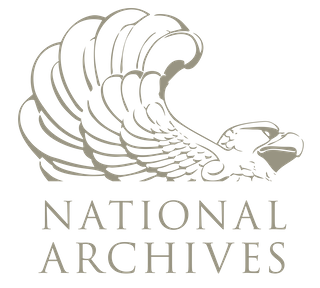The following is a press release issued by the (U.S.) National Archives and Records Administration:
 On Thursday, July 4, 2024, the National Archives will hold its annual Fourth of July program featuring prominent speakers, musical performances, and family activities to celebrate the 248th anniversary of the adoption of the Declaration of Independence.
On Thursday, July 4, 2024, the National Archives will hold its annual Fourth of July program featuring prominent speakers, musical performances, and family activities to celebrate the 248th anniversary of the adoption of the Declaration of Independence.
Celebrate with us!
PROGRAM INFORMATION: July 4th at the National Archives
WHEN: Thursday, July 4, 2024
Ceremony: 10 a.m.–11 a.m.
Family activities: 10 a.m.–4 p.m.
Exhibits (including the original Declaration of Independence): 10 a.m.–7 p.m.
WHERE: National Archives Building, Constitution Avenue steps
Between 7th and 9th Streets, NW, Washington, DC
A riser will be reserved for the press.
Note: The 10 a.m. ceremony will be livestreamed on the National Archives YouTube channel and on the US National Archives Facebook page. Follow the celebration—and share your photos!—on social media using the hashtag #ArchivesJuly4.
This family event is free and open to the public. Seating on the Constitution Avenue steps is available on a first-come, first-seated basis.
Patriotic Shopping at the National Archives Tent Store on Constitution Avenue
8:30 a.m.–6 p.m.
Live Musical Performance by The Experience Band and Show
9 a.m.–9:45 a.m.
Declaration of Independence Reading Ceremony
10 a.m.–11 a.m.
- Greetings by WUSA9 News Anchor Allison Seymour
- Presentation of colors by the Continental Color Guard*
- Live performance of the national anthem by the Marymount University Chamber Singers directed by Dr. Kimberly Hess
- Performance by the Fife and Drum Corps*
- Remarks by Archivist of the United States Dr. Colleen Shogan
- Keynote Speech by CMSAF JoAnne S. Bass, USAF (Retired)
- Dramatic reading of the Declaration of Independence by costumed interpreters portraying historical characters, including Abigail Adams, John Adams, Benjamin Franklin, James Forten, John Hancock, Ned Hector, Thomas Jefferson, and George Washington
- Live performance of “America the Beautiful” by Millicent Scarlett, Soprano
* Continental Color Guard and Fife and Drum Corps provided by U.S. 3rd Infantry, the Old Guard.
Live Musical Performance by The Experience Band and Show
11 a.m.–11:45 a.m.
Stay and enjoy front-row seats for the National Independence Day Parade at 11:45 a.m.
Family Activities
10 a.m.–4 p.m.
Participate in hands-on family activities:
- Sign the Declaration of Independence
- Declaring Independence Scavenger Hunt
- Make your own Independence Day button
- Fun craft activity stations
- Meet and have your picture taken with Revolutionary figures Abigail and John Adams, Benjamin Franklin, Ned Hector, John Hancock, Thomas Jefferson, and George Washington between noon and 4 p.m.
- And a whole lot more!
All activities are free and open to the public. In celebration of the Fourth of July, the National Archives Galleries will have extended hours of 10 a.m. until 7 p.m on July 3 to 5.
National Archives Building in Washington, DC, is located on Constitution Avenue at 9th Street, NW. Free admission and fully accessible. Metro: Yellow or Green lines, Archives/Navy Memorial station.
July 4th at the National Archives is made possible in part by the National Archives Foundation through the generous support of Comcast Corporation, Microsoft Corporation, John Hancock, and Dykema.
About the National Archives
The National Archives and Records Administration is an independent federal agency that serves American democracy by safeguarding and preserving the records of our government, so people can discover, use, and learn from this documentary heritage. The National Archives ensures continuing access to the essential documentation of the rights of American citizens and the actions of their government. From the Declaration of Independence to accounts of ordinary Americans, the holdings of the National Archives directly touch the lives of millions of people. The agency supports democracy, promotes civic education, and facilitates historical understanding of our national experience. The National Archives carries out its mission through a nationwide network of archives, records centers, and Presidential Libraries and online at www.archives.gov.
About the National Archives Foundation
The National Archives Foundation is an independent nonprofit that increases public awareness of the National Archives, inspires a deeper appreciation of our country’s heritage and encourages citizen engagement in our democracy. The foundation generates financial and creative support for National Archives exhibitions, public programs, and educational initiatives, introducing America’s records to people around the U.S. and the world. Learn more at www.archivesfoundation.org.
 Latest News Articles
Latest News Articles If you do not see a Plus Sign that is labeled "Add comment," you will need to upgrade to either a (FREE) Standard Edition or a (paid) Plus Edition subscription
If you do not see a Plus Sign that is labeled "Add comment," you will need to upgrade to either a (FREE) Standard Edition or a (paid) Plus Edition subscription  Do you have an RSS newsreader? You may prefer to use this newsletter's RSS feed at:
Do you have an RSS newsreader? You may prefer to use this newsletter's RSS feed at: